Concluir ejercicios Workbook Unit 4
Do the following exercises on the internet, please. Write down them in your notebooks. (Thursday 13 February)
19 DECEMBER
(SE RECOGERÁ, EN CUANTO ME INCORPORE, EL CUADERNO CON VUESTRO TRABAJO HECHO DURANTE MI AUSENCIA Y EL WORKBOOK CON LOS EJERCICIOS DE LA UNIDAD 3 HECHOS -especialmente aquellos de componer escritos-)
DEBERÁN FIGURAR EN EL CUADERNO LOS EJERCICIOS MANDADOS EN EL BLOG.
ANSWERS:
1
1 mustn’t
2 must
3 don’t have to
4 have to
5 needn't
2
1 I mustn't use Dad's computer.
2 On school days we have to leave our mobile phones at home.
3 At my school, we don’t have to wear a uniform.
4 I must revise for my exams on Saturday.
5 We needn’t get up early on Sundays.
3
1 illegible
2 untidy
3 patient
4 invisible
5 impossible
6 polite
7 unfair
8 independent
9 unbelievable
10 honest
ANSWERS
1
1 some
2 any
3 any
4 some
5 some
2
1 much
2 a few
3 a lot of
4 much
5 a lot of
3
1 embarrassing
2 convincing
3 gripping
4 interesting
5 imaginative
4
1 romantic comedy
2 soundtrack
3 characters
4 ending
5 scene
UNIT 3
- Copy and do the following exercises in your notebook. I´ll give you correct answers tomorrow.
1
Choose the correct words to
complete the sentences.
1 We needn't / mustn’t talk in the exam.
2 I must / don't have to buy my dad a present
because it's his birthday this weekend.
3 We have to / don’t have to do any school work
tonight because the teacher didn't give us any homework.
4 In the UK, you needn’t / have to be seventeen or older when you
learn to drive.
5 We needn't / have to tidy the house now. We can do
it later.
2
Complete the sentences using
the affirmative or negative form of the modal verbs in brackets.
1 I’m not allowed to use Dad's computer. (must)
I __________________________________________________________ .
2 On school days we always leave our mobile phones at home. (have to)
On
school days we __________________________________________________________ .
3 At my school, it’s not compulsory to wear a uniform. (have to)
At
my school, we __________________________________________________________ .
4 It's important for me to revise for my exams on Saturday. (must)
I
__________________________________________________________ .
5 We don't get up early on Sundays because it isn't necessary. (need)
We
__________________________________________________________ .
3
Complete the sentences with the
words below. Add a prefix to the words where necessary.
believable dependent fair
honest legible
patient polite possible
tidy visible
1 Matt wrote a note to me, but I can’t read it because it’s __________________ .
2 Your bedroom is a mess – it looks very __________________ .
3 Anna doesn’t mind waiting for us − she’s very __________________ .
4 In the film a man becomes __________________ , so nobody can
see him.
5 This homework is really difficult – in fact, it’s __________________ !
6 Jamie is a very __________________ person – he always says 'please'
and 'thank you'.
7 You gave Dan two chocolates and I only got one – that’s __________________ !
8 My cousin is twenty, and he doesn't want to live with his parents
any more. He wants to be __________________ .
9 The new French teacher at school can speak five different languages
− it’s __________________ !
10 Ben says he did his homework, but it isn't true. He isn't very __________________ .
-Workbook: Go on doing Unit 3 exercises.
(SE RECOGERÁ, EN CUANTO ME INCORPORE, EL CUADERNO CON VUESTRO TRABAJO HECHO DURANTE MI AUSENCIA)
UNIT 3
- Copy and do the following exercises in your notebook. I´ll give you correct answers tomorrow.
1 Complete the email with some or any.
Hi Dean
Do you want to come to my house on Saturday and watch 1___________
DVDs? I’ve got a lot of good science fiction and comedy films. I know you like
horror too, but I haven’t got 2___________ new horror films.
You often buy DVDs in town, so have you got 3___________ good
new films? Bring 4___________ with you on Saturday, and we can watch
your DVDs too. My mum says we can watch DVDs all day − and we can eat 5___________
pizzas too!
Anyway, email or phone me later today.
Jeremy
2
Choose the correct words to
complete the sentences.
1 How many / much time have we got?
2 I know a few / a little actors because my mum works
for a film company.
3 There is much / a lot of traffic in the city centre
today.
4 We haven’t got many / much milk in the fridge.
5 There are much / a lot of trees behind my house.
3
Choose the correct words to
complete the sentences.
1 The people on this talent show are terrible – it’s embarrassing / convincing!
2 The special effects in the film were really unrealistic / convincing
− it looked like the actors were really in space!
3 We went to bed late last night because the thriller on TV was very gripping / moving, and we couldn’t stop watching it.
4 Documentaries are often very confusing
/ interesting, and you can learn a
lot of amazing things.
5 My friend is very spectacular
/ imaginative – she writes great stories.
4
Complete the film review with
the words below. There are two extra words.
characters ending
horror film romantic comedy scene
soundtrack special effects
The film Billy Bob is a
great 1___________________, and I was laughing from beginning to end.
The 2___________________ is great too, and now I’ve got the CD.
The two main 3___________________ meet in a hospital. I
won’t tell you the story, but the 4___________________ is fantastic.
And one 5___________________ was so funny − I nearly fell off my
chair!
UNIT 3.
- Copy and do the following exercises in your notebook. I´ll give you correct answers tomorrow.
1
Tick
(P) the correct sentence. Rewrite the underlined
words to correct the other sentences.
1 I play tennis with Tina at
ten o’clock tomorrow. ___________________________________
2 I’ll stay here until it will stop
raining. ___________________________________
3 You can leave when you will do
your homework. ___________________________________
4 Nathan can translate anything unless
it’s very technical. ___________________________________
5 The exam has started at 9.30.
Don’t be late! ___________________________________
Mark: ___ / 5
2
Complete
the sentences with the correct form of the verbs in brackets.
1 They’re leaving for the airport as
soon as the taxi __________________ . (arrive)
2 I __________________ anything
special this weekend. (not do)
3 Please turn off my laptop when you __________________
with it. (finish)
4 We __________________ a barbecue on
Saturday night. Do you want to come? (have)
5 If he __________________ good
results, he’ll go up to the next level. (get)
Mark: ___ / 5
Vocabulary
3
Choose the correct answers.
1 My brother’s got two young children:
a toddler / teenager
and a five-year-old.
2 Eddie brought up / grew up on a farm.
3 Poppy asked Carl out / took after Carl on the last day of
school.
4 My parents settled down / split up
when I was little, and I’ve lived with my mum ever since.
5 Curly hair follows in my footsteps / runs in my
family.
Mark: ___ / 5
4
Complete
the sentences.
1 Oliver hasn’t been a father for
long; the __________________ is only two weeks old.
2 When did you __________________ in
love for the first time?
3 I really __________________ up to
her. She seems to be good at everything!
4 I’m dreading the day my grandparents
__________________ away.
5 My two nephews __________________
like cat and dog.
Mark: ___ / 5
-Workbook: Go on doing Unit 3 exercises.
UNIT 3.
- Student's book on page 138.
Please, do the exercises in your notebooks.
Last exercise: please, do it asa writing: a 3.line writing in your notebooks.
-Workbook: Go on doing Unit 3 exercises.
UNIT 3.
Student's book on page 39.
- write in your notebooks the given information about how to write an informal letter.
- Take note of new vocabulary in your notebooks.
- Do exercises 2, 3, 4, 5 and 6 in your notebooks.
UNIT 3.
- Student's book on page 38: get the meaning of vocabulary you can learn on this page. And, please, do the following exercises paying attention to my indications:
* Exercises 1 : Work it in an individual way and write the answers in your notebook.
*Exercises 2: Work it in an individual way and write your answer (three nouns and three adjectives) in your notebook.
* Exercises 3 : Work it in an individual way and write the answers in your notebook.
*Exercise 4: Work it in an individual way and ask and answer the questions on your tablet.
* Exercise 5: Work it in an individual way and write your answer in your notebook.
*Exercise 6: Work it in an individual way and write the dialogue in your notebook.
-Workbook: Go on doing Unit 3 exercises.
UNIT 3.
- Student's book on pages 36 and 37: get the meaning of vocabulary you can learn on this page. And, please, do the following exercises paying attention to my indications:
* Exercises 1 : Work it in an individual way and write 3-line composition in your notebook.
*Exercises 2 and 3: Work it in an individual way and write your answer in your notebook.
*Exercise 4: Work it in an individual way and ask and answer the questions on your tablet.
* Exercise 5: Work it in an individual way and write your answer in your notebook.
*Exercise 6: Work it in an individual way and just do the questionnaire on your tablet.
* Exercise 7: Work it in an individual way and write your answer in your notebook.
* Exercise 8: Work it in an individual way and write your answer in your notebook.
-Workbook: Go on doing Unit 3 exercises.
UNIT 3.
- Student's book on page 33: get the meaning of vocabulary you can learn on this page. And, please, do the following exercises paying attention to my indications:
* Exercise 1: Work it in an individual way and write 3-line composition in your notebook.
*Exercises 2 and 3 on your tablet.
*Exercise 4: Work it in an individual way and ask and answer the questions in your notebook.
* Eercise 5, 6 and 7 on your tablet.
*Exercise 8: Work it in an individual way and just do the questionnaire.
-Workbook: Go on doing Unit 3 exercises.
UNIT 3.
- Student's book on page 31: get the meaning of vocabulary and do exercises 7, 8 and 9. written in your notebooks and work all of them in a personal way.
-Workbook: start doing Unit 3 exercises.
UNIT 3.
- Page 30: get the meanings of vocabulary and do exercises 2, 3, 5 and 6.-Workbook: start doing Unit 3 exercises.
EXAM: NEXT THURSDAY: 28 November
- IRREGULAR VERBS
BIRMINGHAM TEAM: 50 first irregular verbs
LIVERPOOL TEAM: The whole list.
- CONTRAST BETWEEN PAST SIMPLE AND PAST CONTINUOUS.
BIRMINGHAM TEAM: 50 first irregular verbs
LIVERPOOL TEAM: The whole list.
EXAM: NEXT THURSDAY: 28 November
- IRREGULAR VERBS
BIRMINGHAM TEAM: 50 first irregular verbs
LIVERPOOL TEAM: The whole list.
- CONTRAST BETWEEN PAST SIMPLE AND PAST CONTINUOUS.
BIRMINGHAM TEAM: 50 first irregular verbs
LIVERPOOL TEAM: The whole list.
EXAM: NEXT THURSDAY: 28 November
- IRREGULAR VERBS
BIRMINGHAM TEAM: 50 first irregular verbs
LIVERPOOL TEAM: The whole list.
BIRMINGHAM TEAM: 50 first irregular verbs
LIVERPOOL TEAM: The whole list.
EXAM: NEXT THURSDAY: 28 November
- IRREGULAR VERBS
BIRMINGHAM TEAM: 50 first irregular verbs
LIVERPOOL TEAM: The whole list.
- CONTRAST BETWEEN PAST SIMPLE AND PAST CONTINUOUS.Answers
- 1.- We were sitting at the breakfast table when the doorbell rang.
- 2.- He met a lot of friendly people while he was working in California.
- 3.- When they left the museum, the sun was shining.
- 4.- he students were playing cards when the teacher came in.
- 5.- While the children were sleeping, their parents were watching TV.
- 6.- It started to rain while she was watering the flowers in her garden.
- 7.- When I opened the door, it was raining.
- 8.- While Henry was having a drink at the bar, his wife was swimming in the sea.
- 9.- He heard a loud bang while he was talking to his friend.
- 10.- While he was taking a shower, his dogs were eating his steaks.
Choose Past Simple or Past Continuous 4
Make the past simple or past continuous tense in your notebook.
EXAM: NEXT FIDAY: 29 November
- IRREGULAR VERBS
BIRMINGHAM TEAM: 50 first irregular verbs
LIVERPOOL TEAM: The hole list.
BIRMINGHAM TEAM: 50 first irregular verbs
LIVERPOOL TEAM: The hole list.
- CONTRAST BETWEEN PAST SIMPLE AND PAST CONTINUOUS.
Choose Past Simple or Past Continuous 3
Make the past simple or past continuous tense in your notebook.
- 1) We ______________ at the breakfast table when the doorbell ______________ .
- 2) He ______________ a lot of friendly people while he ______________ in California.
- 3) When they ______________ the museum, the sun ______________ .
- 4) The students ______________ cards when the teacher ______________ in.
- 5) While the children ______________ , their parents ______________ TV.
- 6) It ______________ to rain while she ______________ the flowers in her garden.
- 7) When I ______________ the door, it ______________ .
- 8) While Henry ______________ a drink at the bar, his wife ______________ in the sea.
- 9) He ______________ a loud bang while he ______________ to his friend.
- 10) While he ______________ a shower, his dogs ______________ his steaks.
Finish Workbook-Unit 2 exercises.
Study Irregular Verbs for next week.
Answers: choose Past Simple or Past Continuous 2
1) [ were eating ]
2) [ went ][ bought ][ read ]
3) [ were watching ][ heard ]
4) [ was ][ arrived ]
5) [ were you doing ][ was cleaning ]
6) [ visited ]
7) [ were having ][ came ]
8) [ was working ][ found ]
9) [ was studying ]
10) [ was sleeping ][ rang ]
11) [ was walking ][ met ]
12) [ was ][ was falling ][ were singing ][ were doing ]
13) [ was ][ was always missing ]
14) [ called ][ was working ]
15) [ were you crying ][ arrived ]
16) [ got ]
17) [ was sitting ]
18) [ was enjoying ][ didn't notice ]
19) [ wasn't sleeping ][ arrived ][ was studying ]
20) [ wasn't working ]
Tasks for today.
Do Workbook-Unit 2 exercises.
Do exercises 1, 2, 3, 4, 5, 6 and 7 on page 126, Student's Book.
Take note of theory notes on page 127, Student's Book.
Choose Past Simple or Past Continuous 2
Make the past simple or past continuous tense in your notebook.
1) We
| |
2) Yesterday I
| |
3) We
| |
4) Julie
| |
5) A: What
| |
6) Last year I
| |
7) They
| |
8) He
| |
9) Laura
| |
10) He
| |
11) I
| |
12) It
| |
13) My ex-boyfriend
| |
14) When I
| |
15) Why
| |
16) When he
| |
17) At 10 am yesterday, I
| |
18) I
| |
19) David
| |
20) Mr Black
|
Answers:
1.-[ was sitting ][ called ]
2.-[ arrived ][ was ]
3.-[ was watching ][ heard ]
4.-[ went ][ had ][ met ]
5.-[ were playing ][ hurt ]
6.-[ were they doing ]
7.-[ was taking ][ rang ]
8.-[ was ][ rang ]
9.- [ walked ][ was working ]
10.- [ was ][ was shining ][ were singing ][ was walking ][ met ]
11.- [ was living ][ started ]
12.- [ got ][ were waiting ]
13.- [ was ][ was always leaving ]
14.- [ visited ][ saw ][ spent ]
15.- [ were you standing ][ came ]
16.- [ lived ][ were ]
17.- [ were listening ]
18.- [ left ][ was snowing ]
19.- [ was working ][ met ]
20.- [ were you doing ][ called ]
TASKS:
- You all have an exam of Irregular verbs. Remember;
Birmingham Team: 40 first irregular verbs.
Liverpool team: The whole list ("from cover to cover").
- You can also finish Workbook Unit 2 exercises.

Choose Past Simple or Past Continuous 1
Make the past simple or past continuous
Write these sentences in the notebook. It is a very useful exercise.
| 1) I | |
| 2) When you | |
| 3) Susie | |
| 4) Yesterday I | |
| 5) We | |
| 6) What | |
| 7) He | |
| 8) He | |
| 9) When I | |
| 10) It | |
| 11) He | |
| 12) When her train | |
| 13) He | |
| 14) On holiday we | |
| 15) Why | |
| 16) They | |
| 17) At 7pm yesterday, we | |
| 18) When I | |
| 19) He | |
| 20) What |
PRESENT SIMPLE Vs PAST SIMPLE
1.- TO WRITE / A
LETTER / MY FRIENDS
Pr.S. (+) My
friends write a letter
P.S. (+) My
friends wrote a letter
2.- TO SPEND / MONEY ON SPORTS / PETER
Pr. S (-)
Peter doesn’t spend money on sports
P.S. (-)Peter
didn’t spend money on sports
3.- TO BE / SICK / WE
Pr. S (-)
We aren’t (are not) sick
P.S. (-) We
weren’t (were not) sick
4.- TO DRIVE / A CHEVY / SHEILA
Pr. S (?) Does Sheila drive a Chevy?
P.S. (?)Did Sheila drive a Chevy?
5.- TO PAINT / THE WALL / MY PARENTS
Pr. S (+) My
parents paint the wall
P.S. (+)My
parents painted the wall
6.- TO SIGN / A NEW CONTRACT / ANGELINA JOLIE
Pr. S (-)
Angelina Jolie doesn’t (does not) sign a new contract
P.S. (-) Angelina Jolie didn’t (did not) sign
a new contract
7.- TO TEXT / A WHATSAPP / YOU
Pr. S (?)
P.S. (?)
8.- TO DO / EXERCISE / PAUL AND LYNN
Pr. S (-)
P.S. (-)
9.- TO SAVE / THE INFORMATION / THE TEACHER
Pr. S (?)
P.S. (?)
10.- TO SWIM / FIVE MILES / MY FROIEND’S BROTHER
Pr. S (+)
P.S. (+)
Please, do Workbook exercises Unit 2.
















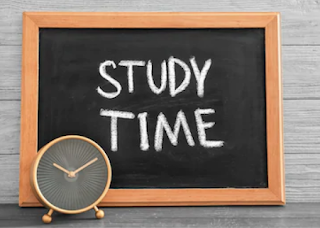















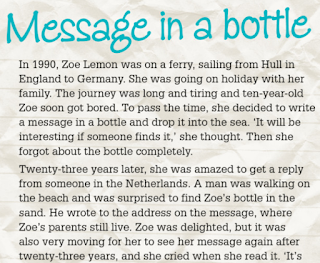










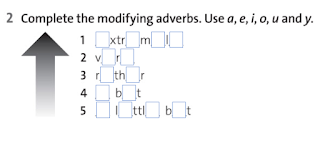


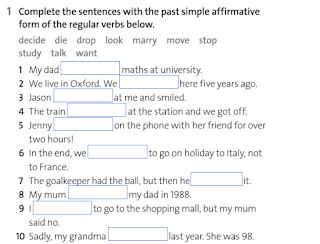



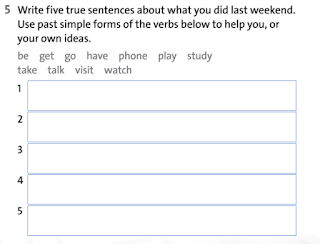








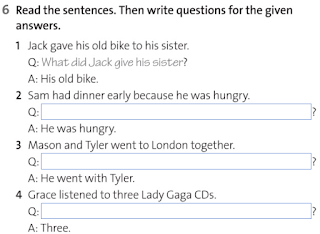




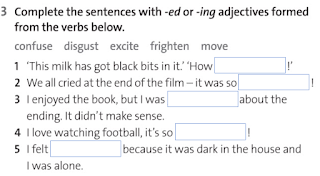



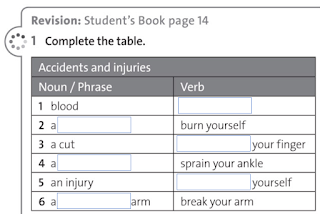















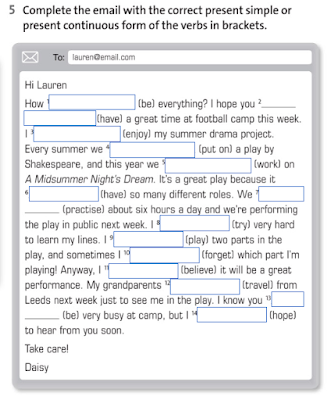








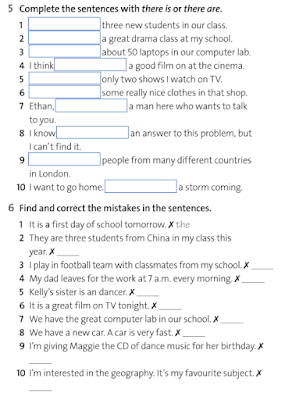













No comments:
Post a Comment